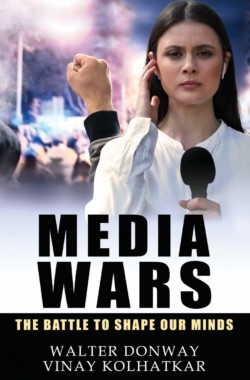The Debate of the Vice-Presidential Candidates: Quibbling—or America’s Fate?
Who won the October 7 debate between vice presidential candidates Sen. Kamala Harris and Vice President Michael Pence? I don’t know—if winning means who did the snap polls declare the winner, who did the pundits applaud, who swayed more voters?
A scan of comments on the debates seems to suggest Vice President Pence made Republicans happy and Sen. Harris made Democrats happy. There appeared to be relief all around that the debate was conducted (more or less) within the rules (Pence went overtime, with moderator Susan Page of USA Today cracking the whip, repeatedly saying “Thank you, Mr. Vice President”; occasionally Harris went over as well).
Richard Lowry, editor of National Review, said: “Trump should let Pence sub for him at the next debate” But National Review has been “Never Trump” from the very beginning.
I interpret calls for cancelling the debates as tacit admission by Democrats that Pence won.
Some Democratic commentators saw Pence as continuing the aggressive interruptions and hogging of allotted time that characterized the first Trump-Biden debate. They called for cancellation of the remaining debates or a microphone shut-off policy. I interpret calls for cancelling the debates as tacit admission by Democrats that Pence won.
That is my opinion, too. I am a partisan Republican, but I found myself growing enthusiastic for Pence as the debate went on. In the initial exchange, the pattern was set. Moderator Page asked a question of Harris. Harris launched a sweeping denunciation of Trump (responsible for most COVID-19 deaths, for example), and then Page asked Pence an unrelated question. All Pence could do, and he did so calmly, was explain he had to respond to Harris. And he did.
My impression was that Harris made a sweeping, emotional denunciation of the Trump administration regardless of the questions.
Did you perceive the pattern that I did? Only if you are a Republican, I guess. My impression was that Harris made a sweeping, emotional denunciation of the Trump administration regardless of the questions: the agony of the unemployed, the families of victims of the pandemic, the “20 million” Americans who lost their health insurance when President Trump started to dismantle Obamacare.
And that Pence replied with a seeming command of the record, statistics, and instances that contradicted the allegations. I assume that reflects conscientious preparation. It did not take any prescience to anticipate Harris’s attacks; all New York Times columnists repeat them every day. Pence is a long-time, seasoned politician, a polished speechmaker and able debater. Every time, he seemed to strongly rebut Harris on the facts and the record.
As he did so, Harris, certainly an attractive woman with a good smile, displayed her teeth in smiling, giggling, eye rolling, and head shaking. None of this, as far as I could tell, did she translate into articulation of a refutation that would be the intellectual counterpart of signaling that the Pence’s points were laughable.
When it came to Harris’s record as attorney general of California, Pence cited her record in statistical terms. Harris retorted that she “would not be lectured” by anyone who had not been in her position. But … she was lectured, by Pence.
When the two candidates went head-to-head, questioning and replying, the focus was on all the far-left positions—notably endorsement of the Green New Deal—that pre-candidate Harris had championed but vice presidential candidate Harris dismissed it with a wide, full-teeth smile—and no comment. Had she not championed Black Lives Matter? The elastic grin. Had she not been first in the Senate to endorse, indeed, co-sponsor, the Green New Deal? The elastic grin. But did not Democratic presidential candidate Joe Biden refuse to endorse the Green New Deal after having endorsed it on his own website? The elastic grin.
“You think I am going to flaunt my leftist views and lose this chance to take America toward statism?” the grin implied.
I am aware that my commentary is in a certain sense impressionistic. How else do you comment on Harris’s chief expression of her opinion: condescending smirks and the occasional sneer?
As a Republican partisan, I became increasingly elated with Vice President Pence’s performance.
As a Republican partisan, I became increasingly elated with Vice President Pence’s performance. He was gracious, the gentleman, the man guided by the facts and the record. Again and again, he quietly confronted Harris with the Biden record—for example, in relations with China—and she had no response. Obviously, this bright woman, cynically posing as the first “Black” vice presidential candidate, with views far left even for California, yearning to revolutionize “racist America,” is the idol and champion of the postmodernists—sometimes called “neo-Marxists”—who dominate our universities, media, arts and culture, and, increasingly, new Democrats in government.
I do not think that this idolization and championship is true of Democratic presidential candidate Joe Biden. He is a career liberal Democratic politician, guided in his actions by electoral politics, enriching himself and his family thanks to crony capitalism, and now, potentially, could become the oldest U.S. president ever to take office—if he wins.
That gives Kamala Harris, accepted as a running mate by Biden for her appeal to women, the far left, California—a sudden chance to vault to national power. Where her dream of socialism would be within reach.
It is easy to reach for apocalyptic comparisons. So, I will say that what follows is a hypothesis. Perhaps only a speculation. I have been reading a classic work on the decline of Rome as a world power, the rise of barbarian tribes—mostly German—and how the once invincible, disciplined power of Rome in the West collapsed.
It is true that one after another, the rulers of the Western Roman Empire became weaker—even feeble. And devastating misjudgments were made. But, in the final analysis, the speed with which Rome, the rule of law, and the sway of civilization collapsed had more to do with a sequence of unpredictable events. This emperor coming to power, this major policy blunder, this treasonous German officer in the Roman officer corps, this opportunity lost: It was not inevitable, at least in its timing. It was unfortunate.
The last thing I intend is to valorize Kamala Harris as a world historical figure. She is more a kind of opportunistic joke. But, as in the critical days of Rome, a laughably weak ruler of America, at the wrong time, under the sway of opponents of America, might do irreparable harm.
To take but one hypothetical example: a President Kamala Harris, profoundly sympathetic with the communist rule of the People’s Republic of China, might view China’s declared long-term aspiration–to replace America as “hegemon,” as China says–as a positive development. Let the (very) semi-capitalist America yield leadership to communist China, which, imperfect as its socialism may be, can lead the third world toward a genuine Marxism. So a generation of left intellectuals in the 1930s cheered the rise of the Soviet Union and a few committed treason to help it.
By such “events,” none determined by “historical forces,” did the Roman Empire go down. Its enemies looked forward to escaping Rome’s dominion. What they got was the Dark Ages.
« The Debate Was “Folly”—but Ask What It Accomplished The Final New Frontiersman »










